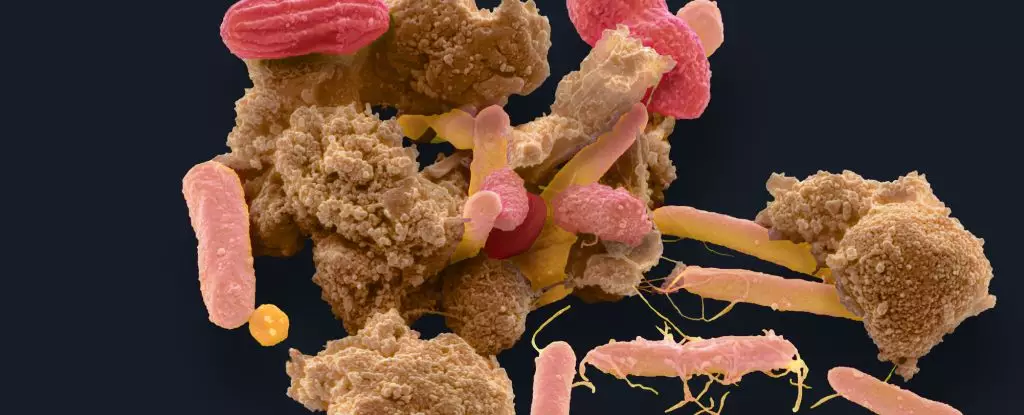The human gut is often likened to a bustling city, structured yet teeming with life. Within this vast ecosystem exists a plethora of microbes that contribute to our overall health—a state known as eubiosis. This intricate balance is fragile; it can be disturbed by factors as mundane as dietary choices, the use of antibiotics, or underlying illnesses. When this equilibrium tips, it can lead to an array of health complications, ranging from annoying digestive disturbances to severe conditions like Crohn’s disease or chronic metabolic disorders.
Given this precarious microbial dance, the medical community has turned its attention toward an innovative, albeit controversial, approach: faecal microbiota transplantation (FMT). This treatment, which essentially involves the infusion of a healthy individual’s stool into a recipient’s gut—often delivered in capsules humorously dubbed “crapsules”—aims to restore that vital microbial balance. As appetizing as this may sound, there are critical risks that deserve our scrutiny, especially in light of new research.
The Promise and Pitfalls of Faecal Transplants
FMT has gained momentum in the treatment of various ailments, including irritable bowel syndrome, obesity, and even neurological issues like Parkinson’s disease. However, recent findings published in the journal Cell throw a wrench into the otherwise optimistic narrative. Researchers have begun to highlight a phenomenon termed a “mismatch,” wherein the microbial flora of the donor does not adequately suit the recipient’s gut environment. This mismatch bears a striking resemblance to organ transplant rejections, raising alarming questions about the safety and efficacy of this treatment.
The study in question tested this principle on mice subjected to antibiotics to disrupt their gut microbes, subsequently treating them with faecal transplants from diverse sources. What the scientists discovered was unsettling: many transplants resulted in regional mismatches, leading to inappropriate microbial colonization in various parts of the gut. This misalignment can disrupt essential functions related to metabolism and immunity—creating a cascade of health problems that might not manifest immediately but could have long-lasting repercussions.
The Genetic Fallout
These mismatches are more than just an annoying oversight; they provoke significant alterations in gene expression related to metabolism and immune response. The implications are profound. While the study did not delineate which specific health issues could arise from these genetic alterations, it does serve as a clarion call for the medical community. Practitioners must tread carefully when administering faecal transplants, paying close attention to factors like dosage, timing, and potential side effects.
Ironically, what was once viewed as a miracle solution may instead require more stringent guidelines and a nuanced approach—one that acknowledges the complex nature of human biology.
Innovative Alternatives: The Omni Microbial Approach
In the face of such daunting revelations, researchers are not sitting idle. A promising alternative is emerging: the “omni microbial approach.” Unlike conventional FMT methods focused primarily on the colon, this innovative technique seeks to transfer a more comprehensive array of microbes, capturing populations from various sections of the intestine. Such a strategy could mitigate the risks associated with mismatched colonies—promoting a more harmonious microbial environment.
Furthermore, there’s an increasing interest in “terraforming” the gut. This meticulous process involves using targeted microbial strains to reshape and restore specific gut regions, thereby enhancing normal function. As unsettling as the potential pitfalls of faecal transplants may be, these new avenues of research ignite a sense of hope for developing gut health therapies that sidestep the tragic misfires of the past.
A Call to Action for Doctors and Patients
With this fresh exploration of gut health, it becomes paramount for both health practitioners and patients to engage in informed dialogues. The complexities of gut microbiota and their influence on our well-being demand that we are not only open to innovative treatments but also cautious about their application. The conversation surrounding faecal microbiota transplantation should pivot from blind optimism to a more nuanced understanding—one that embraces both potential and risk.
While the gut microbiome is undoubtedly a promising frontier in medical science, achieving the delicate balance of promoting human health without incurring unintended consequences must remain our guiding principle. The future of microbial therapies is bright, yet it requires careful navigation and thoughtful innovation to truly harness their power without jeopardizing health in the process.

Leave a Reply